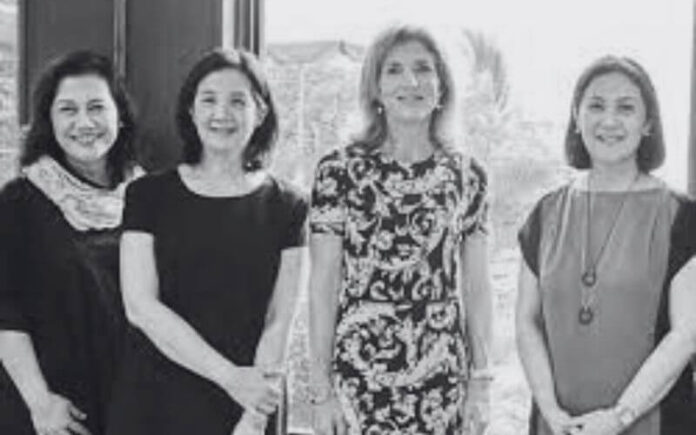Victoria Elisa “Viel” Aquino-Dee stands as a significant figure within the social and civic landscape of the Philippines. Known for her pivotal role with the Assisi Development Foundation, Viel’s work has primarily been in poverty alleviation and community empowerment.
She is not just recognized for her contributions but also for her connection to the renowned Aquino family, a stalwart of Philippine politics and democracy. Drawing from her family legacy, Viel has carved her own path in civic leadership, choosing to invest her efforts into meaningful, community-oriented initiatives. Her focus on effecting practical change, rather than engaging in electoral politics, sets her apart and highlights her commitment to sustainable development.
Family Background
Viel Aquino-Dee’s lineage includes some of the Philippines’ most eminent political figures. As a daughter of Corazon Aquino, the first female president of the Philippines, and Benigno “Ninoy” Aquino Jr., a revered senator whose assassination galvanized the country’s push for democracy, Viel grew up amidst influential personalities and significant historical events.
Positioned among five siblings, she contributes to continuing the Aquino legacy through dedication rather than political ambition. Viel is married to Richard Joseph Dee, and they have a son, Francis Joseph “Kiko” Aquino Dee. Kiko follows his own path as a political analyst and commentator, providing insights into contemporary issues.
Civic Leadership Role
Focusing on Viel’s civic leadership, her involvement with the Assisi Development Foundation is noteworthy. As Vice Chairperson, Viel supports initiatives addressing core societal issues such as poverty alleviation and community support. Her leadership in these areas reflects a strategic focus on sustainable outcomes rather than short-term fixes or superficial engagement.
For example, the foundation’s programs often emphasize capacity-building and self-reliance among communities as opposed to mere handouts. This solutions-oriented mindset not only empowers individuals but contributes to stronger, more resilient communities. Key takeaway: Her leadership emphasizes long-term benefits for communities over fleeting solutions.
Public Engagement and Representation
Viel often acts as a representative for the Aquino family during public events, especially those commemorating her mother’s legacy. Her presence at such events is not merely ceremonial; she actively engages in dialogues that promote her family’s contributions to Philippine democracy.
Her role extends beyond honored daughter to an advocate who articulates her mother’s principles in governance and political leadership. For instance, Viel’s speeches and public appearances often highlight themes of democratic resilience and civic empowerment, ensuring these values remain central to public discourse.
Advocacy for Democratic Principles
As an advocate for democratic principles, Viel Aquino-Dee frequently addresses topics that resonate within the national consciousness. Her speeches often recall her mother’s challenges and achievements, reinforcing lessons on governance and citizen empowerment.
Emphasizing democratic principles, Viel underscores the significance of institution-building and the importance of active citizenship. Her advocacy work offers insight into how grounded principles can transform societies and mobilize citizens toward constructive participation. This approach serves as a guiding light for communities striving for democratic engagement in practical terms, focusing on pragmatic solutions rather than idealistic rhetoric.
Contributions to Social Development
Viel’s dedication to social development encompasses numerous initiatives. Through her leadership roles, she has spearheaded efforts to combat poverty and strengthen communities. Her approach is to tackle root causes, providing scalable solutions that communities can adapt and replicate.
For instance, her work often involves collaborations that empower local populations by connecting them to resources and training that foster economic independence. This strategy not only addresses immediate needs but sets the foundation for ongoing growth and development. The impact of her work reverberates, illustrating how aligned efforts in civic leadership can translate into meaningful societal change.
Conclusion
In conclusion, Viel Aquino-Dee’s influence extends beyond her familial legacy, marked by her steadfast commitment to civic engagement and social betterment. Her focus is clear: to promote sustainability and long-term progress over transient solutions or political posturing.
By prioritizing practical change through civic leadership, Viel exemplifies how individuals can drive communal empowerment and democratic principles from within the civic sphere. Her endeavors continue to inspire others to engage meaningfully with their communities, reinforcing a legacy that is as much about sustainable progress as it is about honoring the past.
For those interested in understanding civic responsibility and impactful leadership, Viel’s approaches offer a valuable framework to consider. Learn more about leadership in nonprofit sectors by visiting this resource.
You may also like:
